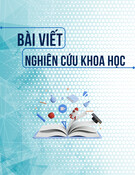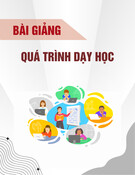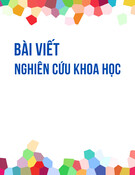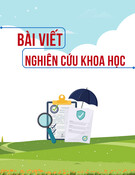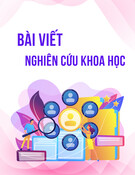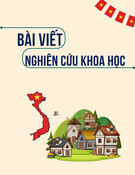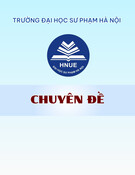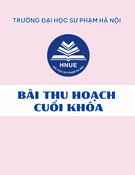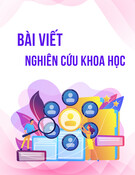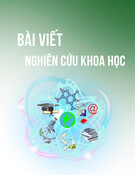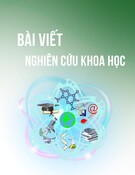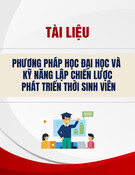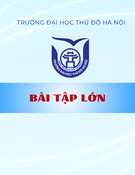
44
HNUE JOURNAL OF SCIENCE
Educational Sciences 2024, Volume 69, Issue 3, pp. 44-52
This paper is available online at https://hnuejs.edu.vn
DOI: 10.18173/2354-1075.2024-0145
REALITY OF TRANS-DISCIPLINARY RESEARCH IMPLEMENTATION
WITH “RESEARCH TEAM” APPROACH: AN INSIGHT
INTO NEGATIVE FACTS AND FIGURES
Trinh Thi Hanh
Faculty of Foreign Languages, National Economics University, Hanoi city, Vietnam
Corresponding author: Trinh Thi Hanh, e-mail: hanhtrinhedu@gmail.com.
Received May 1, 2024. Revised June 3, 2024. Accepted July 9, 2024.
Abstract. Complex problems in global development require cooperation among specialists
from numerous backgrounds. Consequently, trans-disciplinary research seems to be
appreciated due to its exploration of expertise far beyond the the specific boundary of an
individual branch. This study seeks to identify negative aspects of the Research Team as an
approach to the path of trans-disciplinary research. It was carried out at the National
Economics University with 400 participants selected randomly from 20 faculties. Research
methods covered questionnaires, semi-structured interviews, and documentary analysis in
their institutional studies. It was revealed that despite the values of the Research Team from
a theoretical perspective, this approach was not well adapted in reality. The relationship
between academics and stakeholders was weak and the practical application of societal
solutions was not largely implemented.
Keywords: reality, relationship, research team, solution, trans-disciplinary research.
1. Introduction
In a research exploratory training workshop for postgraduate scholars organized by Rhodes
University (2016) [1], it was strongly demonstrated that the world had been trying extremely hard
to handle complicated obstacles, ranging from clean water to a peaceful world. The research scope
of these problems has gone beyond any individual discipline’s coverage. Consequently, it is
crucial to analyze these issues from multi-dimensional perspectives. Current research themes
should be responsible for the sustainable development of the world, which means that these days
the temporary studies’ objectives must be closely linked with societal benefits (Anne, Nils, Emily,
Beth, 2015) [2]. Therefore, academic research should not only tackle theoretical and practical
troubles but also help to construct a socio-research bridge. This challenging context raises the
requirement of improving trendy research under the harmonious cooperation of different
disciplines and the intimate link with societal demands for global sustainable development
purposes. As a result, there is a growing acknowledgment of research approaches with various
sorts of expertise to renew integrated knowledge and science, which is co-called trans-disciplinary
research (Anne, Nils, Emily, Beth, 2015) [2].
To introduce trans-disciplinary research into the reality of contemporary study, one of the
proposed innovations is named trans-disciplinary team, team-based research, collaborative team,
or group think (Mandy, Michael, Gillian, Alison, 2018) [3]. This can be explained simply due to








